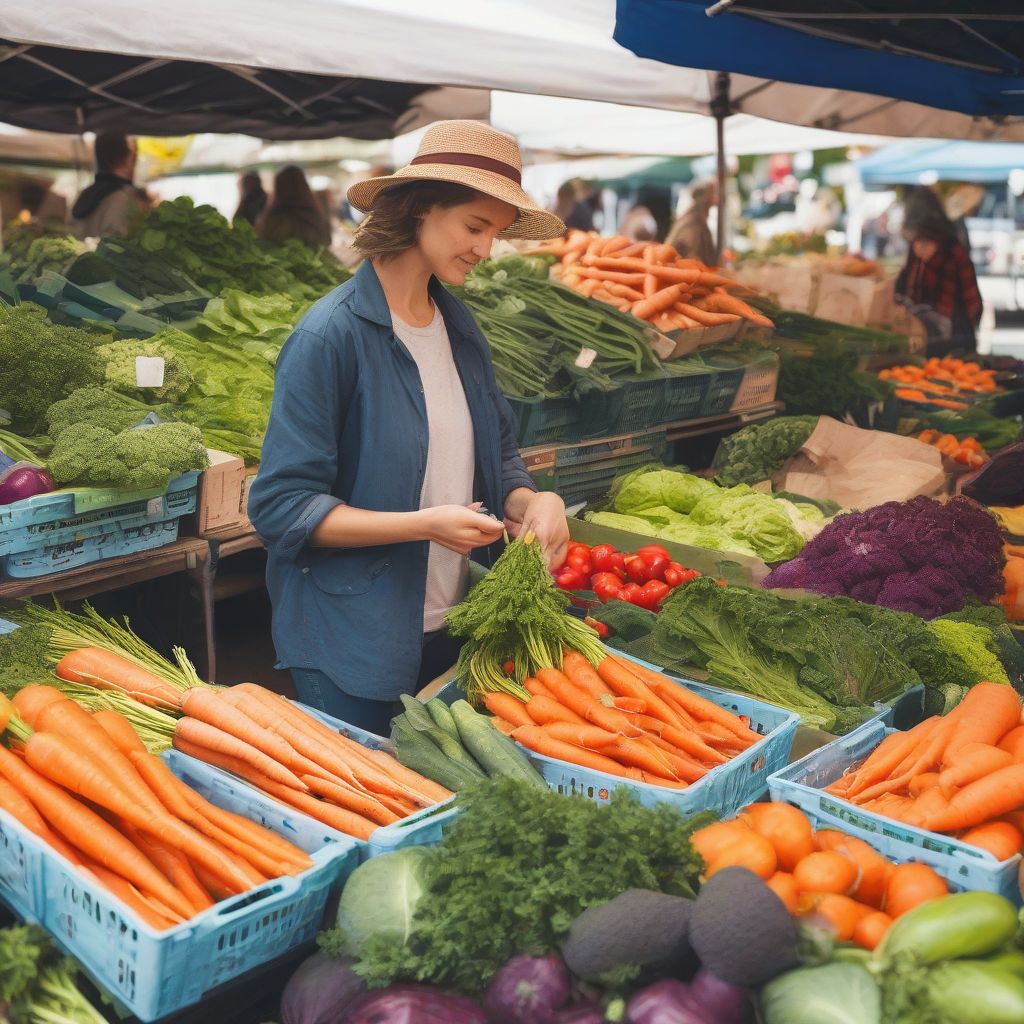Have you ever dreamt of biting into a sun-ripened tomato, warm from your own garden, knowing it’s bursting with flavor and free from harmful chemicals? Growing your own organic vegetables is not only rewarding but also empowers you to control what you eat and enjoy the freshest produce possible. This guide will walk you through the top vegetables to grow organically in each season, helping you maximize your garden’s yield and enjoy delicious, healthy meals year-round.
Planning Your Organic Garden: A Season-by-Season Guide
Creating a thriving organic garden requires understanding what vegetables flourish in each season. This allows you to plan effectively, choose the right varieties, and ensure a continuous harvest throughout the year.
Spring: A Time of Renewal and Growth
Spring is the perfect time to start many cool-season crops. These vegetables thrive in cooler temperatures and can even tolerate a light frost. Some top choices include:
- Lettuce: A fast-growing and versatile leafy green, perfect for salads and sandwiches. Choose loose-leaf varieties for continuous harvests.
- Spinach: Packed with nutrients, spinach is a healthy addition to smoothies, soups, and salads.
- Peas: Sweet and delicious, peas are easy to grow and provide a satisfying crunch. Choose dwarf varieties for smaller spaces.
- Radishes: A quick-growing root vegetable, radishes add a spicy kick to salads and can be harvested in as little as a month.
- Carrots: Plant carrots in loose, well-drained soil for optimal root development.
- Broccoli: A cool-season favorite, broccoli provides abundant heads and can even produce side shoots for later harvests.
Summer: Abundance and Warmth
Summer brings longer days and warmer temperatures, perfect for heat-loving vegetables like:
- Tomatoes: A garden staple, tomatoes come in a wide variety of shapes, sizes, and flavors. Choose indeterminate varieties for a continuous harvest throughout the summer.
- Peppers: From sweet bell peppers to spicy jalapeños, peppers add flavor and color to your meals.
- Cucumbers: A refreshing summer treat, cucumbers are perfect for salads and pickles.
- Zucchini: A prolific producer, zucchini can be used in countless dishes, from bread to fritters.
- Beans: Whether you prefer green beans, pole beans, or bush beans, these versatile legumes are easy to grow and provide a good source of protein.
- Corn: A summer classic, sweet corn is best enjoyed fresh from the garden.
Fall: Harvesting the Bounty
As the weather cools down, fall offers an opportunity to extend your harvest with these cool-season crops:
- Kale: A hardy and nutrient-rich leafy green, kale can tolerate light frosts and provides a continuous harvest.
- Brussels sprouts: These miniature cabbages are packed with flavor and nutrients.
- Cauliflower: A versatile vegetable, cauliflower can be roasted, mashed, or added to stir-fries.
- Cabbage: Forming dense heads, cabbage can be used in salads, slaws, and stir-fries.
- Swiss chard: Another hardy leafy green, Swiss chard offers colorful stems and a slightly bitter flavor.
- Turnips: Both the roots and greens of turnips are edible, providing a double harvest.
Winter: Extending the Season
Even in colder climates, you can extend your growing season with these winter-hardy vegetables:
- Spinach: Certain varieties of spinach can overwinter in milder climates, providing fresh greens throughout the winter months.
- Kale: Like spinach, some kale varieties can survive the winter and even become sweeter after a frost.
- Carrots: Left in the ground, carrots can be harvested throughout the winter, becoming sweeter with the cold.
- Garlic: Plant garlic in the fall for a summer harvest the following year.
- Onions: Similar to garlic, plant onions in the fall for a summer harvest.
Tips for Organic Gardening Success
- Choose the Right Location: Select a sunny spot with well-drained soil for your garden.
- Prepare the Soil: Amend your soil with compost and other organic matter to improve its fertility and structure.
- Start Seeds Indoors: Starting seeds indoors can give your plants a head start and extend your growing season.
- Water Wisely: Water deeply and less frequently to encourage strong root development.
- Mulch Your Garden: Mulching helps to suppress weeds, retain moisture, and regulate soil temperature.
- Practice Crop Rotation: Rotate your crops each year to prevent nutrient depletion and pest buildup.
- Use Natural Pest Control Methods: Encourage beneficial insects and use natural pest control methods to keep your garden healthy.
 Seasonal Vegetable Shopping
Seasonal Vegetable Shopping
Conclusion: Enjoy the Fruits (and Vegetables) of Your Labor
Growing your own organic vegetables is a rewarding experience that connects you with nature and provides you with fresh, healthy food. By following this seasonal guide and incorporating organic gardening practices, you can create a thriving garden and enjoy delicious, homegrown vegetables year-round. Share your gardening triumphs and challenges in the comments below! What are your favorite vegetables to grow organically? We’d love to hear your tips and experiences!



